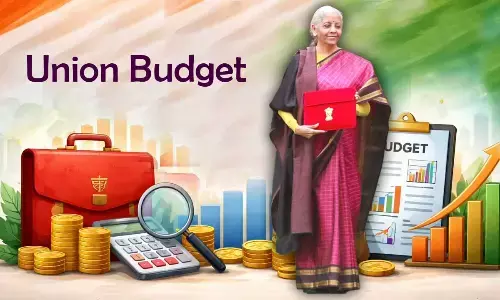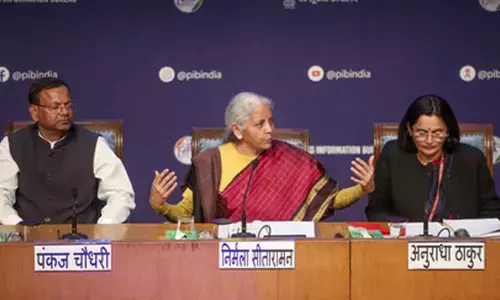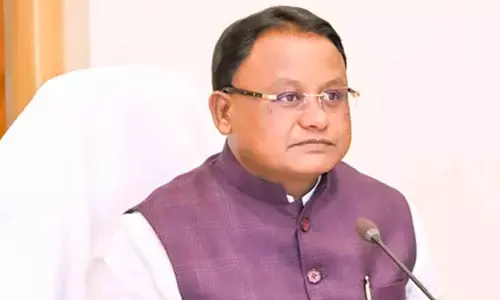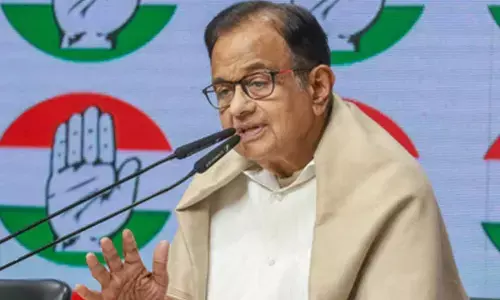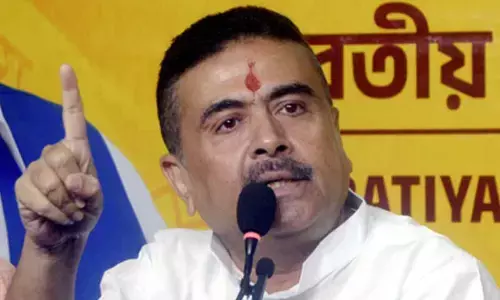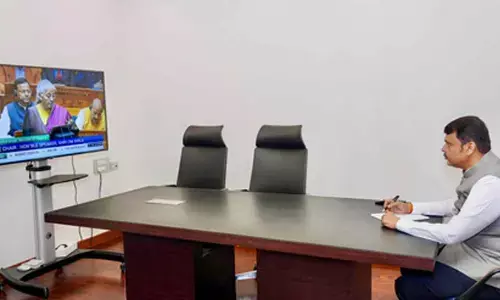Need a quantum leap to make Indian education future-proof

Need a quantum leap to make Indian education future-proof
In the wake of the pandemic driven chaos disrupting the age-old education delivery and evaluation system for Indian students, Think Change Forum, an independent think tank dedicated towards seeking solutions for navigating the post-pandemic world, today released a set of recommendations on "How to Make the Indian Education System Future Proof"
In the wake of the pandemic driven chaos disrupting the age-old education delivery and evaluation system for Indian students, Think Change Forum, an independent think tank dedicated towards seeking solutions for navigating the post-pandemic world, today released a set of recommendations on "How to Make the Indian Education System Future Proof".
To supplement its research and analysis, Think Change Forum organised a panel discussion on the topic which brought together reputed experts from the field of education such as Gowri Ishwaran, Padma Shri Awardee and Founder Principal, Sanskriti School; Maj. Harsh Kumar, Secretary, NCERT; Col. Gopal Karunakaran, CEO Shiv Nadar School; Prof. Ajay Rana, Dean, Director & Professor, Amity University; Prof Rajib Dasgupta, Professor and Chairperson, Centre of Social Medicine and Community Health, JNU; Prof Binod Khadria, Chair Professor of Contemporary Indian Studies at School of Management and Labor Relations at Rutgers, New Jersey USA.
The panellists were unanimous in their view that the pandemic has shaken up the system, and while it has thrown up new challenges, it has also presented an unprecedented opportunity for educators and policy makers to take a quantum leap in making Indian education system progressive and future proof at a mass scale.
A summary of key recommendations that emerged from the forum's research and discussions are as follows:
More power to teachers: The current system of central board driven evaluation needs a re-think. There is a need to supplement centralized annual exams with equal weightage to hyper-local continuous evaluation done by teachers and educators. Schools should be made the assessment and certifying authorities in the new era.
Balance academics with life skills: The pandemic has thrown up a need for continuous evaluation of students with a mix of academic performance and other life skills like emotional intelligence, social intelligence and adversity coping quotient.
Upskill teachers with annual evaluation: Central Boards like CBSE and ICSE should annually evaluate teachers on their knowledge and preparedness for localized continuous evaluation. Introduce centralized annual tests for educators to standardize the learning delivery and evaluation ecosystem nationally. Teachers need to be accountable towards outcome focused training, in terms of what children actually end up learning, and not merely output focused, in terms of the syllabus covered.
National e-School: We need a solution to address 70 per cent of student population who do not have access to enablers of online education like laptops, smartphone etc. A new national e-school could focus on developing future-proof learning pedagogy delivered digitally. Students can finish schooling digitally, giving them a choice between a physical school vs digital school. This will take learnings to remote areas, as well encourage participation from the girl child. Will also circumvent teacher shortages.
Fortify public schools: Strengthen public schools with requisite technology backbone and last mile devices and make them ready for uninterrupted schooling during pandemic kind of situations, as private sector schools can never cover a country of the size and scale as India.
Padma Shri Gowri Ishwaran, renowned Indian educationist was of the view that we must adopt a continuous evaluation system that concentrates on the creative skills, problem-solving skills, and overall development of the students. She said, "When we plan our evaluation system, we have to be very clear on the need for balancing the academic quotient with other life skills like problem solving ability, creativity and innovation. Our evaluation system of the future should be outcome centric and not output driven."
Taking this forward, Col. Gopal Karunakaran, CEO Shiv Nadar School, said: "The fundamental question of assessment is deeply connected with what we value as a nation. We have to assess the emotional intelligence, social intelligence, and now in the pandemic, physical health and the adversity quotient of the students. I believe the evaluation system should be a mix of academic evaluation and the evaluation of these personality quotients."
Highlighting the government's response to the pandemic, Major Harsh Kumar, Secretary, NCERT, added: "NCERT has taken up the challenge of the pandemic. Alternative Calendar for primary and secondary classes was rolled out within two weeks of the pandemic. Various apps were developed and released on the website of NCERT, along with this, educative videos and online classes for all classes from 1-12 under PM e-VIDYA was launched. Online counselling by experts under MANODARPAN is being conducted. The government machinery is in full swing to implement the National Education Policy in letter and spirit."
While agreeing upon the teaching and learning challenges due to the sudden switch to the online classes Prof. Rajib Dasgupta - Professor and Chairperson, Centre of Social Medicine and Community Health, Jawaharlal Nehru University says, "The dialogue around how to reopen the schools is important now as the switch to online education has been really difficult and unsatisfactory, as we were not used to it. There is a lot of recalibrating and rethinking that the school education has to go through in purely epidemiological term."
The challenges were not only in terms of adapting to the technology but also the non-availability of that technology to the majority of our population. Raising the same concern, Prof Ajay Rana - Dean, Director & Professor, Amity University said: "As the pandemic unfolded, private institutes and colleges were able to respond fast with technology centric solutions. However, 70 per cent of our student population is not served by these private sector institutes. This is where government needs to provide a solution, so these 70 per cent students enrolled into public sector education system have easy and free access to technology and requisite facilities for their learning to continue uninterrupted."








